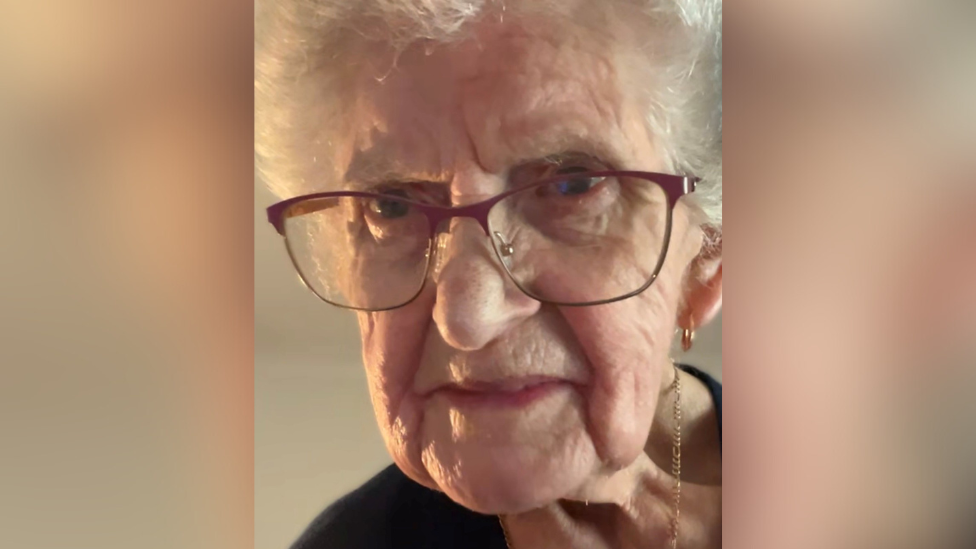Ambulance boss warns of 'very challenging' winter
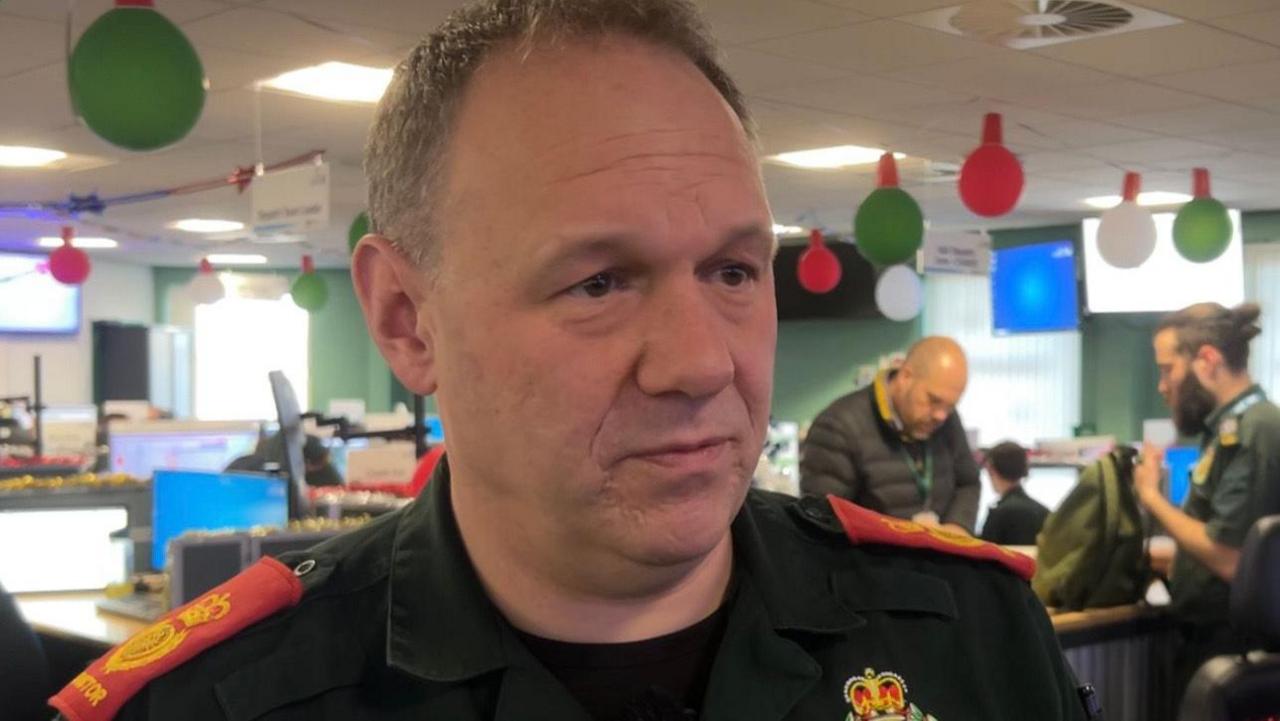
Dr Matt Thomas said people should consider alternatives to 999 if they are able
- Published
People should use ambulance services "responsibly" as winter pressure mounts on the NHS, the executive medical director of the South West Ambulance Service has said.
Dr Matt Thomas made the warning after figures showed five of the hospitals served by the South West Ambulance Service NHS Foundation Trust (SWASFT) are in the top 10 for longest ambulance waits in the country.
More than 75% of patients waited longer than 30 minutes to be handed to emergency teams at Swindon's Great Western Hospital last week, despite a new £30m emergency unit.
Dr Thomas told the BBC that his message to service users this winter was "help us to help you".
He added that people should be asking themselves what they can do to make things better this winter, explaining that cases of covid, flu and norovirus are all on the increase.
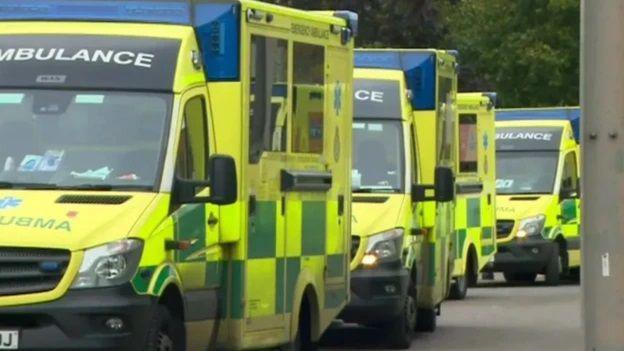
The service has already seen an increase in calls compared to the daily average
SWASFT said people can and should call 999 for an ambulance if in a medical emergency, but that accessing other services is often more appropriate and will help ease pressure at A&E.
Dr Thomas urged people to think about taking the vaccines on offer this winter and to ensure their medicine cupboards are well-stocked with first aid equipment as well as painkillers and any regular prescribed medication.
'If you need us, call us'
He added that over the "last couple of weekends" the ambulance service had taken "up to and over 3,000 calls a day", compared to a daily average over the year of about 2,650.
"It is busy, and it's likely to remain a constant business over the winter," he said, although he added: "I do not want people to worry and feel they cannot call 999."
"My message is 'if you need us, call us', however if you have an opportunity to think of an alternative, there are other options available to you," he said.
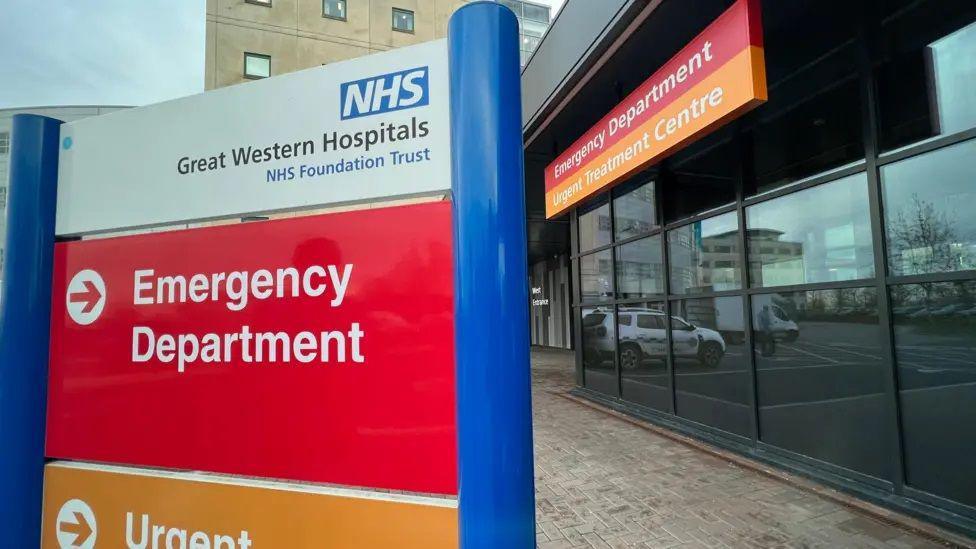
Great Western Hospital was recently named as the hospital with the longest ambulance handover times in the country
It was revealed last week that Swindon's Great Western Hospital had the longest ambulance handover times in the country, with four other hospitals covered by SWASFT also in the top 10.
Dr Thomas said this was something the service is "concerned" by, with the issue "very high" on its agenda.
"What you're seeing is part of a wider national problem - the health and care service is under a lot of pressure," he added.
A spokesperson for the hospital said its urgent and emergency care services are "under significant pressure", but teams are "working hard to minimise delays".
Follow BBC Bristol on Facebook, external, X, external and Instagram, external. Send your story ideas to us on email or via WhatsApp on 0800 313 4630.
- Published8 December 2024
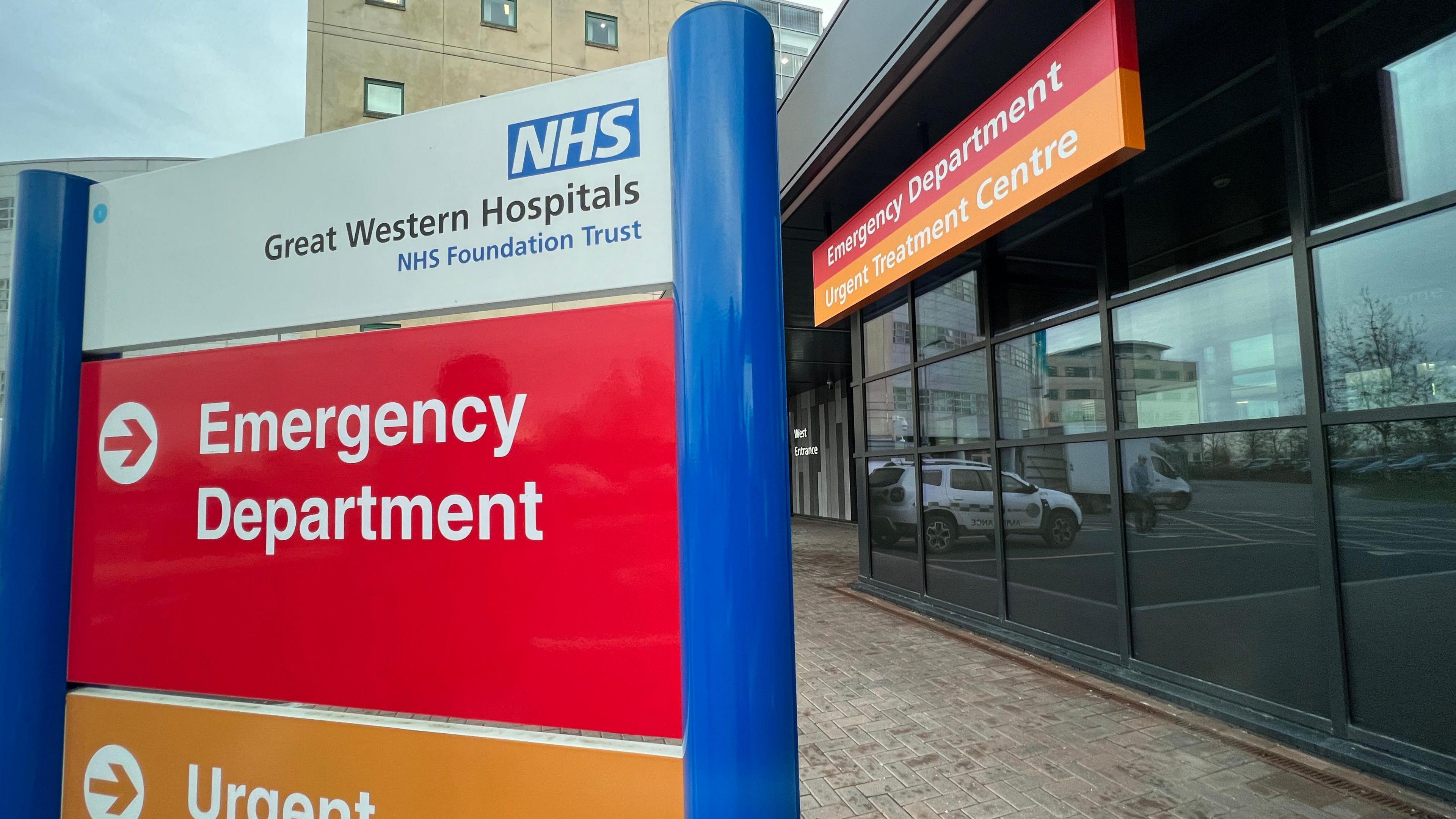
- Published29 November 2024
